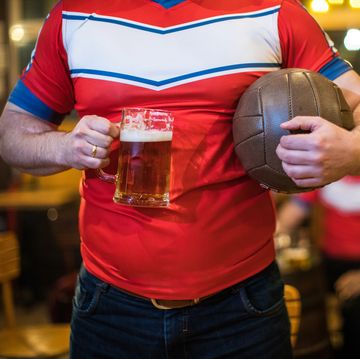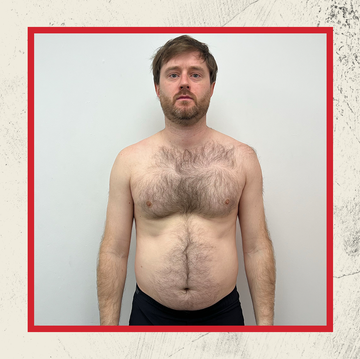Alan Aragon and I began writing The Lean Muscle Diet with a simple and counterintuitive idea: Most diets work. They can work in the short term, long term, or anything in between.
Moreover, the reasons they work are no mystery. No matter what claims their creators make, they all offer more or less the same benefits.
1. They give you a way to eat less
Although some diet gurus claim calories don’t matter, all successful diets create rules that force you to eat less. The Atkins diet, for example, eliminates most carbohydrates, which comprise about 45% of the average American’s diet.
Other diets eliminate most fats, or animal products, or grains and dairy. For most of us, limiting choices means cutting back on the total amount of food we eat.
2. They give you a structured way to eat
Some diet plans, like Weight Watchers, are less restrictive about food choices, but instead give you a point system to quantify how much you eat. Other diets are based on meal timing or fasting, which cut away many of your opportunities to overeat.
But even the ones that don’t specify meal timing or frequency do something much more valuable.
3. They eliminate most processed foods
Packaged foods are engineered to be overeaten.
The goal is to make them so tasty you consume vast quantities before your body’s hunger mechanisms switch off. Some snack foods can actually make you hungrier while you’re eating them.
Related: 6 Reasons You Overeat
Any solid diet will be based on whole foods, which require shopping, meal planning, and food preparation.
Building a diet without processed food helps you in two important ways:
- You have to think about what you eat long before you actually eat it.
- You take away the option of getting lunch or dinner at a drive-through line.
4. They typically give you more protein and/or fiber
Most of us know that protein is the muscle-building nutrient. And that’s important, especially if you’re in a serious exercise program, and most especially if you’re lifting weights.
But eating protein actually does a lot more:
- It uses more calories during digestion, which increases your metabolism
- It makes you feel full faster
- It makes you less hungry between meals
Fiber also helps fill you up. It aids digestion and provides a number of health benefits.
Some of the most popular low-carb diets, like paleo and South Beach, give you more protein, while low fat and vegan diets give you a lot more fiber. Even a super-low-carb diet like Atkins includes a lot of vegetables, which is why Atkins dieters tend to get more fiber than the average American.
5. They give you a way to maintain your new, lower weight
One of the biggest complaints about diets is that they aren’t sustainable. The more restrictive they are, the faster you’ll want to break free.
But some of the most popular diets are designed for lifelong adherence. If you take up a vegan diet, for example, the goal is to stay meat-free for life. So the weight you lost when you stopped eating burgers and bacon should stay off.
Same with the paleo diet. It’s based on the idea that we should eat what our ancient ancestors would recognize as food—meat, eggs, fruit, vegetables, nuts and seeds—and avoid anything that came from farming, like grains and dairy. The only way to regain weight is to go back to eating the foods you swore you wouldn’t touch.
So you may wonder why so few people who use popular diets actually lose weight and manage to keep it off. There could be lots of factors related to habits, lifestyle, or the individual’s commitment to the program.
But there’s also one very good reason why a fad diet may not work for you:
Personal preference.
If you don’t like the food in the diet, or can’t go long without the things the diet forbids, it won’t work. Alan believes personal preference is the most important and yet most often overlooked factor in weight loss.
In study after study, those with the best adherence to their diet lose the most weight, no matter if it’s low carb, low fat, or anything in between. The most extreme diets typically have the highest dropout rates, but the ones who can stick to them also get the best results.
So what determines how long you stick to a diet?
Common sense tells us you have to like the food. You may not love it, but if you can’t tolerate it for long, or if it negatively affects your mood or energy level, there’s no way you’ll last.
That’s why our new book, The Lean Muscle Diet, provides a template for reaching your goals while letting you choose what to eat, and how to eat it. As long as it’s nutritious and either whole or minimally processed, it’s on the menu.
Lou Schuler, CSCS, is an award-winning journalist and author, with Alan Aragon, of The Lean Muscle Diet.













